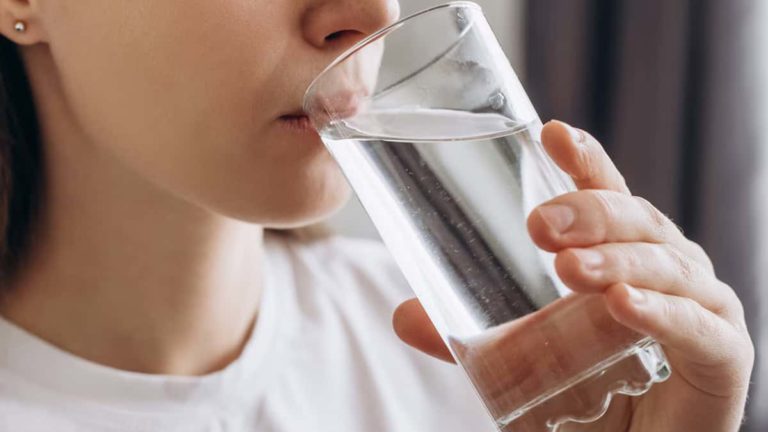
Water is often overlooked despite being one of the most basic and essential needs for human survival. People tend to focus more on food or other immediate concerns, but without enough water, the body can’t function properly. It plays a key role in maintaining health, energy, and mental clarity, and yet, it’s easy to forget to drink enough throughout the day. Staying hydrated is such a simple way to improve overall well-being, but it’s often neglected until we feel thirsty or experience the effects of dehydration.
Importance of Water
Water is essential for hydration, keeping the body’s cells, tissues, and organs functioning properly. It aids in digestion, nutrient absorption, and waste elimination. Proper hydration supports healthy skin, energy levels, and mental clarity. Water helps regulate body temperature and prevents dehydration-related health issues. Overall, it is fundamental to maintaining physical, mental, and emotional well-being. Water is essential for human beings for several key reasons:
- Hydration and Cell Function: Our bodies are made up of around 60% water. Water is vital for maintaining the balance of bodily fluids, which include blood, lymph, and digestive juices. These fluids help cells function properly, transport nutrients, and remove waste.
- Temperature Regulation: Water helps regulate body temperature through sweating and respiration. It has a high heat capacity, meaning it can absorb and release heat slowly, which helps maintain a stable internal temperature.
- Nutrient Transport and Digestion: Water is crucial in the process of digestion and nutrient absorption. It dissolves nutrients, allowing them to be transported via the bloodstream to different parts of the body. It also helps in the breakdown of food and the absorption of nutrients in the intestines.
- Waste Removal: Water is essential for removing waste products from the body through urination, perspiration, and even breathing. Kidneys filter waste and toxins from the blood, and adequate water intake helps this process function properly.
- Joint Lubrication: Water helps lubricate and cushion joints, reducing the risk of friction and wear in the body’s tissues, which helps prevent joint pain and inflammation.
- Brain Function: Dehydration can affect cognitive abilities like concentration, memory, and mood. Water supports the function of the brain by helping maintain the balance of electrolytes, and dehydration can impair mental performance.
- Detoxification: Drinking enough water helps flush out toxins from the body, supporting organs like the liver and kidneys in their detoxifying roles.
In short, without water, our bodies would not be able to perform essential biological functions, leading to dehydration and serious health issues. Drinking enough water is fundamental to maintaining overall health.
Water and Well-being
Water plays a crucial role in supporting our overall well-being. Staying properly hydrated has many positive effects on physical, mental, and emotional health. Here’s how water contributes to our well-being:
1. Physical Health:
- Energy Levels: Adequate hydration helps maintain energy levels. Dehydration can lead to fatigue and a lack of focus. Drinking water boosts circulation, ensuring that oxygen and nutrients are delivered to your cells efficiently, helping you feel more energized.
- Healthy Skin: Water helps keep the skin hydrated, promoting elasticity and a healthy glow. It helps prevent dryness, puffiness, and irritation, and can reduce the appearance of wrinkles.
- Detoxification: Water is vital for flushing out toxins from the body through urine, sweat, and even through breathing. Proper hydration supports kidney and liver functions, reducing the risk of toxin buildup.
- Digestion: Drinking water aids in digestion, making it easier for the body to break down food and absorb nutrients. It also helps prevent constipation by softening stools.
- Weight Management: Sometimes, thirst can be mistaken for hunger. Drinking water before meals can help control appetite and prevent overeating. It also helps maintain a healthy metabolism.
2. Physical Health:
- Cognitive Function: Proper hydration is essential for brain health. Dehydration can impair concentration, memory, and decision-making skills. Drinking enough water helps maintain focus, mental clarity, and overall cognitive function.
- Mood Regulation: Studies show that even mild dehydration can lead to irritability, anxiety, and a reduced sense of well-being. Staying hydrated can help stabilize mood and reduce feelings of stress.
- Improved Sleep: Water supports the body’s natural detox processes while you sleep. Being well-hydrated can also improve sleep quality, as dehydration may lead to discomfort during sleep.
3. Emotional Well-being:
- Stress Reduction: Staying hydrated helps the body cope with stress. When dehydrated, the body produces higher levels of cortisol (the stress hormone). Drinking water can help balance this and reduce stress.
- Boosted Immune System: Water helps keep the body’s defenses strong. It supports the immune system by promoting the production of lymph, which carries white blood cells to areas where they are needed to fight off infections.
4. General Vitality:
- Physical Activity and Recovery: Water is essential for muscle function and recovery. During exercise, water keeps muscles hydrated and prevents cramps. After physical activity, drinking water helps to replenish fluids lost through sweat, supports recovery, and reduces soreness.
- Joint and Muscle Health: Water helps lubricate joints and muscles, reducing stiffness and improving mobility. Proper hydration ensures that your body moves smoothly and reduces the risk of joint pain or muscle cramps.
Hydration Tips for Well-being:
- Drink water regularly throughout the day, even if you don’t feel thirsty.
- Aim for 8 glasses (about 2 liters) of water per day, though individual needs can vary based on activity level, climate, and body size.
- If plain water is hard to drink, try adding slices of lemon, cucumber, or herbs for flavor.
- Monitor urine color—if it’s pale yellow, you’re hydrated. If it’s darker, it may be time to drink more water.
In summary, drinking water is essential for maintaining a healthy, balanced, and energized life. It supports nearly every aspect of well-being, from physical health to mental clarity, mood, and stress management. Regular hydration should be a priority for optimal health and vitality.






